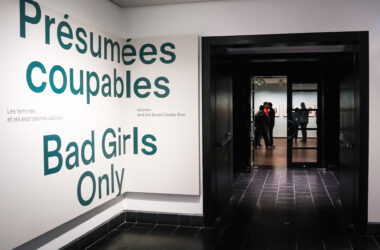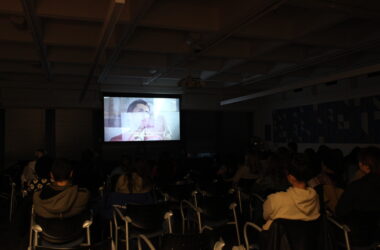 smashinglist.com
smashinglist.comSt. Patrick’s Day isn’t the most conventional starting point for a book review. The only reading usually done on St. Paddy’s tends be a cursory glance at a drinks menu. Yet it is a celebration of the Irish presence in Canada nonetheless, so it can still be deemed a most fitting occasion for reviewing a new biography on Thomas D’Arcy McGee—one of the finest Irishmen ever to have sat in a Montreal pub.
Attempting to historically decipher McGee is a noble but daunting task. McGee was the precocious maverick of Canada’s founding fathers. A poet, a politician, a pamphleteer, a playwright, an orator, a journalist, and a drinker, he was the most eloquent, multi-talented spokesman of Canadian Confederation.
But alongside his talents, McGee possessed a cryptic complexity of character. In particular, any historian will have a torrid time trying to make sense of a very intelligent man’s dramatic conversion from a being an ardent Irish nationalist revolutionary—with a deep-seated hatred of British rule—to an exemplary loyalist of the British Empire in North America, and the “poet of Confederation.”
The Extreme Moderate is the second volume in David A. Wilson’s two part biography of McGee. The whole project—involving exhaustive research through Canadian Government archives and thousands of McGee’s personal correspondences, writings, and speeches—has taken Wilson 10 years to complete, and the result is a magnificently vivid portrait of a prolific man.
Written in lucid, lively, and concise prose, The Extreme Moderate tracks the trajectory of McGee’s Canadian political career, from his immigration to Canada in 1857 to his assassination in Ottawa 11 years later. McGee’s political life was one where triumph went hand in hand with tragedy, and Wilson’s narrative reflects that poignantly. On one hand, it dotes on McGee’s highly impressive achievements in Canadian politics. On the other hand, the book evokes deep feelings through reflective passages that dwell on McGee’s tumultuous family life, his descent into alcoholism, his heavy political setbacks, his lambasting in the Toronto press, and his tragic, premature death at the hands of the Fenian Brotherhood.
The most striking part of the book is Wilson’s consistent ability to convey McGee’s extraordinary dynamism and prodigious work ethic. The most inspiring and humbling example of this is the passage where McGee enrolled at McGill’s Law School as a mature student. Not only did he manage to excel at his degree, but he also did so in tandem with some astounding extra-curricular activities: being a full-time Canadian MP; conducting a series of lectures across North America; writing a play; writing A Popular History of Ireland; being a full time father and husband; and—on top of it all—indulging daily in the sort of drinking habits that most of today’s students would reserve solely for St. Patrick’s Day.
Above all, Wilson makes the book highly relevant to contemporary Canadian readers through his excellent discussion of McGee’s Canadian vision. McGee believed that Canadian society should cherish its diverse, multicultural roots, allowing each culture, ethnicity, or religion its own separate, inviolable space to grow. To McGee, this meant not only tolerance, but also appreciation of the other cultures which make up the Canadian nation. Importantly, McGee’s vision gives room, as Wilson alleges, for a dual nationality—allowing a vibrant Quebec culture under the federal umbrella of Ottawa, and for immigrants to continue to be able to associate themselves with both their old country as well as their new Canadian home.
Using this creed of a tolerant multiculturalism, McGee fought—ultimately at the cost of his life—to keep the Old World hatreds and prejudices of his day back in the Old World.
Canadians have a lot to thank for McGee’s courage in “frowning down” intolerant organizations like the Orange Order that threatened to exert excessive control over Canadian society and would do well to continue living by McGee’s message: a fair and liberal creed to bring Canadians together with, as he once declared, “a unity in diversity.”








